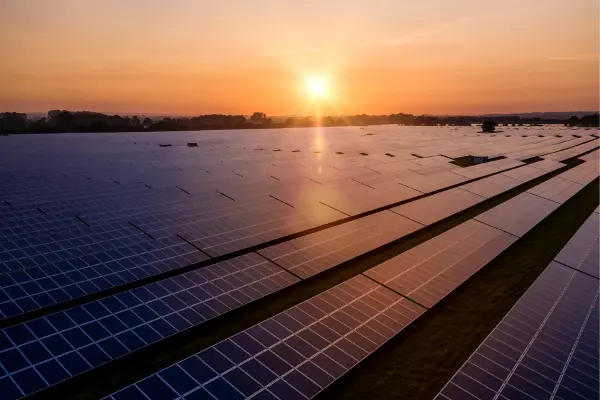- Bioengineering offers novel ways to reduce greenhouse gases, enhance ecosystems, and develop sustainable alternatives.
- Key advancements include effective carbon sequestration, sustainable biofuels, and drought-resistant crops.
- Success in bioengineering could lead to a carbon-balanced atmosphere, a green energy transition, and global food security.
There is no question, we all increasingly experience the consequences of climate change. As such, Impact Technologies are seen as indispensable instruments for both mitigation and adaptation strategies. Within this context, Bioengineering Innovations shine by combining biology with engineering principles to tackle the complex challenges presented by a changing climate.
WHY BIOENGINEERING INNOVATIONS ARE IMPORTANT IN ADDRESSING CLIMATE CHANGE
In the fight against climate change, bioengineering innovations prove crucial: they present novel approaches to our most pressing environmental challenges. By amalgamating biology and engineering principles; these technologies pave innovative pathways–reducing greenhouse gas emissions is one such pathway–, enhancing ecosystem resilience become another, and cultivating sustainable alternatives to traditional practices emerges as a promising third option.
Effective Carbon Sequestration: Bioengineering enables the efficient sequestration of carbon: organisms undergo design modifications that enhance their ability to capture and store carbon dioxide. This approach directly tackles a key driver of climate change, marking an effective solution in addressing this global issue.
Pioneering Sustainable Biofuels; Traditional fossil fuels significantly contribute to global greenhouse gas emissions; however, by employing bioengineered organisms that produce biofuels – serving as greener alternatives – we can pioneer sustainable solutions and thereby decrease our carbon footprint.
Developing Resilient Crops; As climate patterns transition into unpredictability, they pose a significant risk to food security. However, bioengineering offers a potential solution: by developing crops with enhanced resilience against drought, salinity, pests and diseases – stable food sources can be maintained even in challenging conditions.
Creating Bioplastics and Biodegradable Materials; The proliferation of plastic pollution intensifies environmental issues: this is an undeniable fact. Yet, there is a glimmer of hope in bioengineered materials; they can provide us with biodegradable alternatives–a significant step towards minimizing environmental harm.
Aiding Ecosystem Restoration: Bioengineering aids in ecosystem restoration by employing techniques such as the engineering of organisms to detoxify polluted waters or rejuvenate degraded soils.
WHAT DOES SUCCESS IN BIOENGINEERING INNOVATIONS LOOK LIKE?
Successful Bioengineering innovations can potentially revolutionize our approach towards environmental sustainability. Key players in this field strive for their objectives – unlocking groundbreaking solutions that could profoundly modify how we interact with and influence the natural world.
Achieving a Carbon-Balanced Atmosphere; If bioengineering efforts achieve effective carbon sequestration techniques, we may witness a significant reduction in atmospheric CO2 levels; this could potentially decelerate global warming–even reversing some of its deleterious effects.
Facilitating a Green Energy Transition; Advanced biofuels can facilitate a transition to green energy; this shift would potentially reduce the world’s dependence on fossil fuels. The resultant benefits: cleaner air, diminished greenhouse gas emissions and more.
Guaranteeing Global Food Security; The advent of bioengineered crops may guarantee global food security, even in the face of climate change’s vagaries; their introduction could potentially provide an abundance of sustenance for everyone. Moreover, these enhanced nutritional profiles might not only combat malnutrition but also enhance worldwide health outcomes.
Promoting Sustainable Consumption: By substituting conventional plastics with biodegradable alternatives, we promote sustainable consumption: the resultant benefits include reduced pollution–a direct positive impact on our planet; thriving marine life–crucial for ecological equilibrium is restored, and balanced ecosystems re-emerge.
Reviving Damaged Ecosystems: Bioengineering is a potential catalyst in the restoration of damaged ecosystems – from coral reefs to mangroves to forests to wetlands. The subsequent bolstering of our planet’s natural defenses against climate extremes would be through these rejuvenated ecological systems.
Shaping Ethical Bioengineering Processes; Success in this field could catalyze an evolution of our ethical considerations concerning genetic engineering, thereby establishing precedents for responsible innovation.
ENVISIONING A FUTURE SHAPED BY BIOENGINEERING
Especially within the framework of climate change, bioengineering emerges as a beacon, for it embodies hope; it fosters innovation and offers comprehensive solutions. With keen attention to detail, this field tackles contemporary challenges head on–crafting solutions that not only respect life’s intricate complexity but also sustain our planet’s fragile balance.
Deeply committed stakeholders in this area actively strive to transform the frequently pessimistic climate change narrative: they infuse it with a sense of proactivity and inspiration drawn from biology’s wonders. Their notable achievements pave the way towards an integrated future where technology harmoniously merges with biology. These innovative pathways not only cater to immediate needs but also establish—through forward-thinking sustainability—the groundwork for our world’s harmonious continuity.











